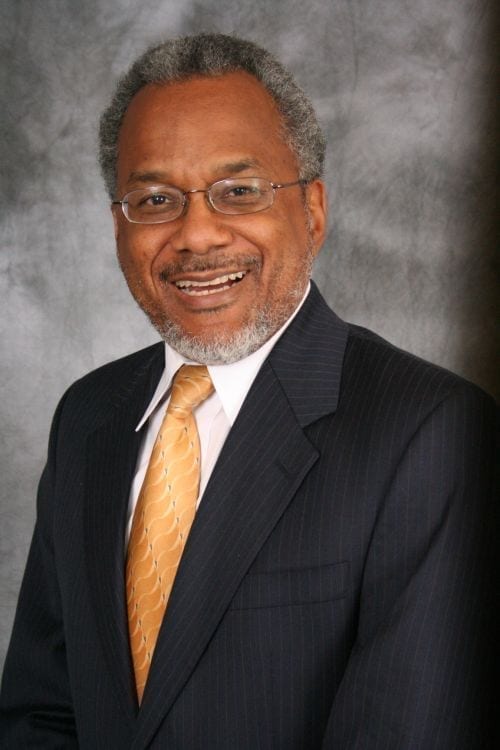
Ever since Indiana authorized charter schools in 2001, the Indianapolis Public Schools wasn’t thrilled about it.
But the election of reform minded school board members last November and the hiring this summer of Superintendent Dr. Lewis Ferebee signaled changes in IPS’ attitude toward charters in general and perhaps school reform in particular.
Last week, those changes became publicly manifest.
Democrats on the House Education Committee were blindsided by House Bill 1321, sponsored by Committee Chair Rep. Robert Behning, from Hendricks County and Indianapolis’ Southwestside (outside of IPS).
The bill would allow IPS to create “innovation schools”; allowing different types of public schools inside existing IPS buildings. IPS would retain some of the state dollars for those schools’ students and would count the students’ academic performance in IPS’ overall A-F performance grades.
The committee’s four Democrats were livid about the bill, especially the initial bill’s provision banning collective bargaining for employees of these “innovation schools.”
Behning, to his credit, eliminated that provision, but that didn’t keep Democrats from grilling Ferebee during the hearing.
Democrats’ anger hadn’t dissipated when the bill came up for a final House vote.
Every Democrat voted no (plus eight Republicans).
Democrats’ fury might’ve been assuaged if Ferebee and the IPS Board had reached out to the majority of legislators from Indianapolis. It was an insult for Indy’s Democratic legislators to get a letter from Ferebee asking for support a couple of days before the final vote.
Supt. Ferebee has done a good job reaching out to the different constituencies touched by IPS. From teachers, support staffers, administrators, parents and community folks. Ferebee has communicated more with the public with interviews and through social media than any other school chief in this city in years.
Intellectually, I don’t have a problem with the overall “innovation schools” proposal. IPS needs to utilize the excess space in their buildings. Especially if that keeps buildings open and not closed to become neighborhood blights.
Supt. Ferebee, IPS Board President Annie Roof and the board majority should not have allowed themselves to blindside Democratic legislators the way they did.
It’s dangerous for Ferebee and the IPS Board to marginalize those elected by residents of the district and the city-county to represent them in the place where IPS gets the bulk of their funds.
Ferebee and the board must be more inclusive of the community and civic folks they touch base with. Ferebee and IPS may have won a battle in the Legislature. But they run the risk of losing the long term war.
Ferebee and the board should remember that while Republican legislators and the mayor are supportive of their “innovation schools” scheme, GOP legislators and Ballard will turn a blind eye when the Republican controlled Legislature carves out more money from IPS to dole out to suburban and non-urban school districts.
Ferebee and the IPS board could learn lessons from the life well lived of Dr. Beurt SerVaas who died Feb. 2 at age 94.
SerVaas was one of the cadre of men who built the modern Indianapolis.
Yes, SerVaas was Republican and UniGov did provide that party political hegemony over this city-county until Republicans fled for the now solid Republican suburbs as Indianapolis’ white growth ebbed, supplanted by the growth of the African-American and Hispanic communities.
But unlike many Republicans in power today, Beurt SerVaas was of a generation not afraid to speak with and work with our African-American community.
SerVaas built a relationship with the legendary owner-publisher of the Indianapolis Recorder Marcus Stewart Sr. Both were Republicans and their comfort level was such that many a day SerVaas would visit the Recorder offices to spend time talking issues and more with Stewart.
SerVaas and Democrat Glenn Howard also built bridges of cooperation. The best example of working together across the political divide were the decades that SerVaas, as City-County Council president, worked with and built a strong, warm relationship with Democratic City-Council leader Rozelle Boyd.
Unlike Greg Ballard, who locks his doors to avoid meeting with Blacks who disagree with him, Beurt SerVaas would meet with militants to ministers, all to find common ground and help grow his beloved Indianapolis.
SerVaas also supported Black media in Indy. When SerVaas suggested to Marcus Stewart that the Recorder move from Indiana Avenue, because SerVaas was pushing the expansion of IUPUI, SerVaas helped Stewart obtain the building that currently houses this newspaper.
There’s been an urban legend that SerVaas owned the Recorder at one time. Not true, former Recorder owner-publisher-editor Eunice Trotter told me. She did say when Indianapolis banks redlined the Recorder, SerVaas helped open some bankers’ doors (or probably twist their arms) so the Recorder could survive.
SerVaas was instrumental in making sure that Indy’s Black-owned TV station, then WAV-TV, now WDNI was carried by the city’s cable companies.
For many years, SerVaas lived in the Wynndale area. When that neighborhood changed in the 1980s as Black middle and upper middle class families moved in, SerVaas could’ve moved elsewhere in Indianapolis.
He didn’t – remaining in a now minority-majority neighborhood for nearly 30 years.
With the world knowledge gained as an American intelligence agent during and right after World War II, SerVaas made lots of worldwide connections.
For years he did business in South Africa. But when the movement grew to levy sanctions on the apartheid regime, SerVaas supported sanctions.
Dr. Beurt SerVaas was one of the overall giants of Indianapolis.
A sharp, canny businessman; superb politician and political tactician; someone who wasn’t born into privilege, but through hard work became a giant at everything he touched.
Beurt SerVaas was one of the generation of Indianapolis leaders secure enough in their own skins to reach out to build dialogue with our Black community. Unlike today’s Indianapolis leaders who are so afraid of their own shadows that they lead through division, dissension and disharmony.
My deepest sympathies to his family. We won’t see his like again.
See ‘ya next week!
You can email comments to Amos Brown at acbrown@aol.com.